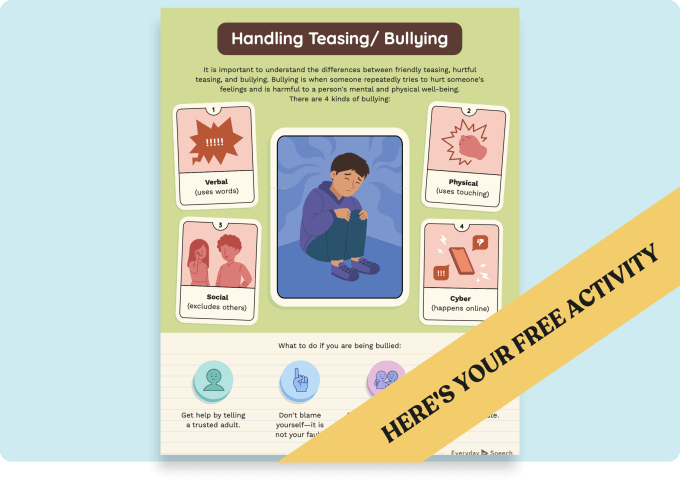Keeping Conversations Balanced: Teach Students the Art of a Friendly Chat
Get free social skills materials
No-prep lessons on self-regulation, emotional recognition, conversation skills, and more.
Sign up hereIntroduction
When engaging in conversations with friends, it’s essential to maintain a balance between sharing and listening. In social-emotional learning, teaching students to have meaningful conversations is an important skill. This blog post will introduce an easy no-prep activity that educators can use to help students understand the importance of balanced conversations and avoid overwhelming their peers with too much information.
No-Prep Activity
This activity, called “Conversation Catch,” requires no preparation or materials from the educator. The objective is to help students practice taking turns in conversation, just like they would in a game of catch.
- Ask the students to form pairs.
- Explain that they will be having a conversation, taking turns to speak and listen.
- Give the students a topic to discuss, such as their favorite hobbies or weekend plans.
- As the students converse, remind them to pay attention to their partner’s responses and adjust their own input accordingly.
- After a few minutes, ask the pairs to switch partners and repeat the process with a new topic.
By participating in this activity, students will learn to recognize when they are sharing too much information and practice giving their conversation partner an opportunity to speak.
Discussion Questions
After completing the activity, use these questions to stimulate further discussions:
- Why is it important to take turns while talking with friends?
- How did you feel when your conversation partner listened to you or shared an appropriate amount of information?
- What strategies can you use to make sure you’re not overwhelming your conversation partner with too much information?
- How can you tell if someone is getting confused or uncomfortable during a conversation?
- What are some ways to politely steer a conversation back on track if someone is sharing too much information?
Related Skills
Teaching students to maintain balanced conversations also helps develop other important social-emotional skills, such as:
- Active listening
- Empathy and understanding
- Non-verbal communication
- Assertiveness and setting boundaries
- Conflict resolution
Next Steps
Now that you’ve learned about this no-prep activity for teaching students to have balanced conversations, we encourage you to explore even more resources and sample materials to support your students’ social-emotional learning journey. You can access free sample materials by signing up at Everyday Speech. These resources can help you build a comprehensive and engaging curriculum for your students in Special Education.

